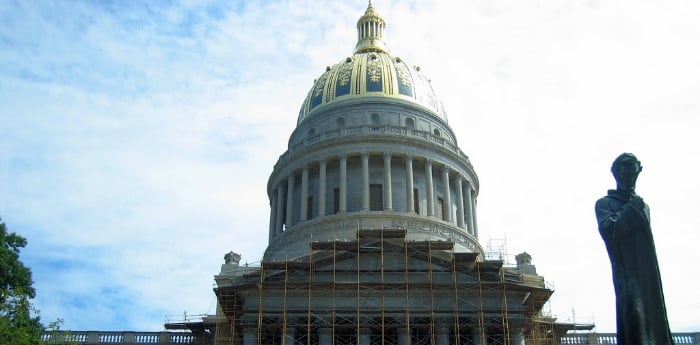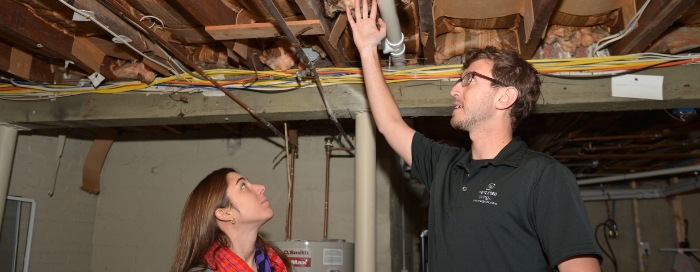This has been a bit of a roller-coaster year for advanced energy in state legislation, with high profile rollbacks in Ohio and Indiana, but big steps forward in Minnesota and Connecticut. South Carolina became the latest state to adopt a renewable energy goal, setting the stage for solar growth there. New financial incentives for advanced energy investments were passed in a host of states. And more states started to look at ways for electric and natural gas vehicles to contribute to road and highway maintenance, as they are not subject to gasoline taxes.

Note: some links in this post reference documents in BillBoard, an application in AEE's new energy policy software platform, PowerSuite. Click here and sign up for a free 14-day trial of PowerSuite.
Each year, the Center for the New Energy Economy publishes an overview of legislative trends in the advanced energy sector from state legislatures across the country. In looking at 2014, the Center found a total of 437 bills that made it into law in a variety of categories relevant to advanced energy.

Renewable energy policies had some high profile setbacks with the passage of Ohio’s SB 310 to suspend the state’s renewable and efficiency standards and Wisconsin’s AB 594, which exempted four of the state’s small utilities from the requirements of the renewable portfolio standard (RPS).
Yet there were some significant expansions of renewable policies as well: South Carolina (SB 1189) became the 38th state to establish an renewable portfolio standard or goal, and Maine (SP 644) enacted a solar standard that will grow solar capacity in the state from 40MW in 2016 to 500 MW in 2030. Massachusetts (S 2214) added a renewable thermal energy standard to its nation-leading policies in renewable energy, which have brought the state to fourth place nationally in solar installations.

EPA’s Clean Power Plan brought a focus to utility emissions in many state legislatures. In total 11 laws were passed relating to the Clean Air Act. Most of these provided legislative direction for rulemaking in response to the EPA’s proposed rule on greenhouse gas emissions from the electric power sector. With HB 2354, Pennsylvania required approval by the general assembly before a state plan could be submitted to comply with the Clean Power Plan, although as passed the law allows the state to file a plan with EPA after a “revision” process of 60 days, should the initial plan get voted down by the legislature. Indiana’s HB 1005 officially pulled that state out of the Midwest Climate Accord – a defunct agreement, which they never officially joined.

Financing and Financial Incentives continue to be a focus of states throughout the country – but six states (CO, MD, NY, UT and VA) accounted for nearly half of the bills passed this year. As in previous years, tax credits dominated this category, with Iowa’s SF 2340 notably increasing the state’s solar property tax credit by 10%. PACE (Property Assessed Clean Energy) legislation was dominant across the country with California (AB 2597), New Hampshire (HB 532), Maryland (HB 202), and Oregon (HB 4041) all amending their PACE statutes.

Regulatory bills were in full force in 2014, with notable bills being West Virginia’s HB 2803, requiring utilities to develop integrated resource plans, and Virgina’s provisions relating to cost recovery for offshore wind developments (SB 643).

Connecticut and Minnesota both passed impressive omnibus energy bills. Minnesota (HB 2834) included provisions authorizing an electric vehicle charging tariff, on-bill financing, greenhouse gas emissions reduction planning by utilities, renewable interconnection and the low income home energy assistance program (LIHEAP). Connecticut (SB 357) raised building efficiency standards and expanded the state’s PACE program to include microgrids, allow cost recovery for on-bill financing, and revise the property tax exemptions for renewable thermal systems.

Interestingly, energy efficiency was a less active policy area in 2014 than in the past, with only 23 bills enacted this year. Indiana said “no” to efficiency and energy productivity by eliminating the state’s efficiency standard (SB 340). But Mississippi allowed for Energy Performance Contracting in state facilities (SB 2521) and Colorado (SB 186) allowed small communities to aggregate energy efficiency and renewable energy projects to benefit from upgrades by energy services companies (ESCOs).

With higher efficiency vehicles on the roads, many states have seen declining gas tax revenues – as a result, legislatures have attempted to address the ways with which natural gas and electric vehicles will contribute to these funds. California, for example, increased taxes on natural gas vehicles (AB 1907) to help fund infrastructure, while New Mexico adjusted tax rates across all fuel types with HB 30. Nevada skewed the data somewhat in this category by passing four separate bills to support Tesla’s planned “Gigafactory” for manufacture of advanced batteries.
Many legislatures were in short session or didn’t meet at all in 2014, leading to a low number of bills introduced and enacted. However, with the elections behind us, 2015 is sure to be a hotbed of legislative activity. AEE and its state and regional partners will be ready.
Keep track of all energy legislation moving through states from coast to coast next year with BillBoard. BillBoard is a part of AEE's PowerSuite, which has all the tools you need to track the important topics and trends in energy policy. Check it out!
